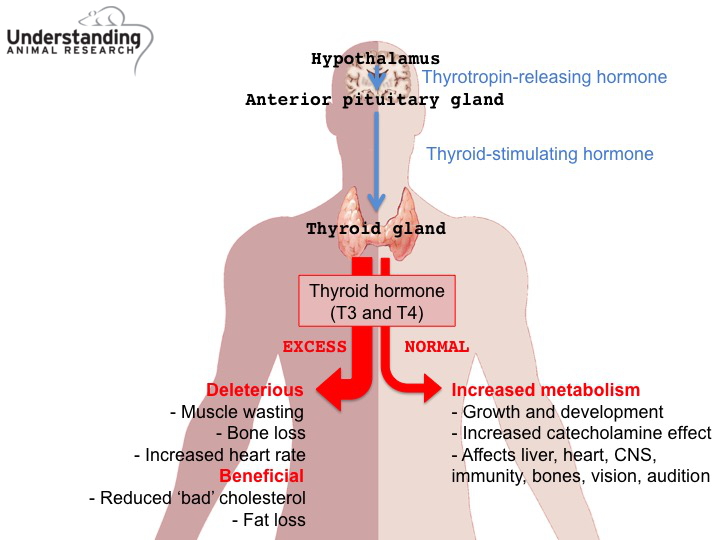Levothyroxine Sodium - thyroxine replacement

On WHO Model List of Essential Medicines : YES
Alternative names: Synthroid, Levoxyl, Levothroid, Unithroid, Tirosint, Levo-T, L-thyroxine
Levothyroxine or L-thyroxine is a replacement for a hormone normally produced by your thyroid gland to regulate the body's energy and metabolism. It is a synthetic (man-made) version of the principle thyroid hormone, thyroxine (T4) that is made and released by the follicular cells of the thyroid gland. Thyroid hormone increases the metabolic rate of cells of all tissues in the body.

In the foetus and newborn, thyroid hormone is important for the growth and development of all tissues including bones and the brain. In adults, thyroid hormone helps to maintain brain function, utilization of food, and body temperature, among other effects.
Levothyroxine treats hypothyroidism - when the thyroid does not produce enough of this hormone on its own - to suppress thyroid hormone release from cancerous thyroid nodules. It also prevents goiter – an enlarged thyroid gland - which can be caused by hormone imbalances, radiation treatment, surgery, or cancer. In addition, Levothyroid is prescribed with anti-thyroid drugs, to manage thyrotoxicosis (high thyroid hormone levels due to over-activity of the thyroid gland).
Toxicology reports :
http://www.accessdata.fda.gov/drugsatfda_docs/nda/2011/202231Orig1s000Pharm.pdf
Last edited: 25 February 2016 11:29
